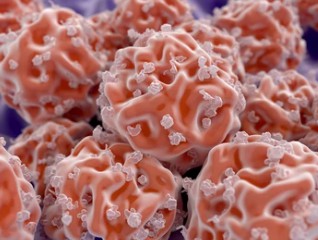Cultured meat is produced from animal cells cultured in the growth medium of a bioreactor, not directly from slaughtered animals. Various cells that have proliferative properties and maintain their ability to remain undifferentiated, such as stem cells, satellite cells, and adipose tissue stem cells, are used to produce cultured meat. Stem cells from mature cells responsible for tissue regeneration and repair can also be used in cultured meat, but these cells are more prone to senescence when grown in vitro. Researchers are looking to find transgenic cells as an alternative to adult stem cells and satellite cells. In addition, more research is needed to determine which cells are best suited for large-scale manufacturing or creating specific product types. Intrinsic cell characteristics, such as suitability for suspension growth, ploidy time, growth rate, metabolism, differentiation capacity, and genomic stability, may vary by cell type and species.

For cultured meat, stem cells are used because they can divide indefinitely and differentiate into different types of lineages, just like meat from different organs. As an ideal partner for cultured meat, Lifeasible is committed to developing stem cells suitable for cultured meat production. Our customized solutions offer a variety of methods for obtaining or deriving stem cells.
We offer minimally invasive methods to collect cell samples from living animals.
To provide embryonic stem cells as a source for culture meat production, our team of experts is dedicated to developing well-characterized embryonic stem cell lines. Our unique cell reprogramming technology platform is used to obtain induced pluripotent stem cells (iPSC) that maintain the desirable characteristics of embryonic stem cells without the need to extract them from embryos. What attracts customers is that our reprogramming technology technically allows other starting cell types to be directly transformed into muscle, fat, or other cell types.
Working closely with biotechnologists, we are developing emerging transgene-free technologies, such as microfluidics and nanostructures, which can deliver genes to stem cells with high throughput and efficiency.
We can help you obtain the following different types of stem cells for cultured meat production. In addition, we develop other cell line selection strategies to generate multiple cell lines from a single animal, different biopsy locations within the animal, the age or sex of the animal, different individuals within the same species or breed, or clones of each derived cell line.
When cells divide more rapidly, their genetic content is potentially unstable, leading to undesirable phenotypic and functional changes. We have advanced technologies such as single-cell genome sequencing, epigenome sequencing, and transcriptomics to characterize cell lines and even reveal differences between cells belonging to the same cell lineage.
Our experienced stem cell biologists fully apply their knowledge and tools to the field of cultivated meat. In addition, Lifeasible works closely with life science companies and contract research organizations specializing in cell line development to explore the potential of cell line engineering in cultured meat production. Our goal is to provide you with well-characterized cell lines for cultured meat production. We guarantee you obtain cell lines at competitive prices, with short turnaround times and reliable results. Feel free to contact us for more information.